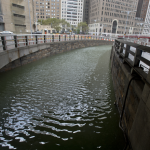
The law is generally thought of as unwavering, qualified truths. We often view data the same way. Data is supposed to show us what is really happening when analyzing something we don’t fully understand. I have spent the past summer at the New York State Office of the Attorney General’s Environmental Protection Bureau where they combine data and the law a lot.
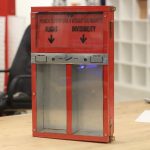
Data can help cities tailor litter reduction strategies by digging deeper to understand its root causes. By conducting research that is specific to an area, data-driven programs or policy recommendations—and lasting results—can become more feasible.

India has had a rich history of storytelling, especially oral traditions. Stories intertwined with personal narratives have been a medium to pass down cultural values and traditions to future generations. The greatest epics of the land—the Ramayana and Mahabharata—have been passed down for centuries with these picking up historical (most often, inaccurate) anecdotes along the way as they steered through time.

Nuclear power can often inspire thoughts of wanton destruction. I know it did for me. My grandparents, who lived through World War II, used to tell me stories about the devastation at Nagasaki and Hiroshima. I considered nuclear weapons to be humanity’s worst invention, a characterization I carried over to nuclear power. Because I had such a bad image of nuclear weapons, nuclear power, to me, was the most dangerous energy source on the planet. But all that has started to change recently as I have begun to read my supervisor James Hansen’s papers.
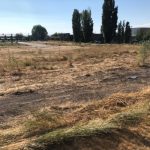
Just like people get fevers, global climate change is making the Earth unhealthy. Doctors can diagnose diseases using modern medical technology. Fortunately, climate scientists can do the same. By collecting climate data, analyzing them, and, scientists can get a sense of how sick the planet is and provide advice on actions we can take to protect it.
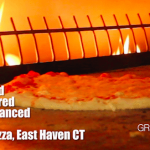
There are several local and nationwide programs attempting to revitalize these downtown areas. One of those programs is Greenworks Lending, a company that aims to rehabilitate businesses through clean energy solutions, where I’m working this summer.

When President Trump announced his intention to withdraw the U.S. from the Paris Agreement, action on climate change in the U.S. didn’t just come to a standstill. States have stepped up their game to combat climate change. As a policy intern at the nonprofit Center for Climate and Energy Solutions this summer, I have been fortunate to conduct research on the wide array of actions they are taking.
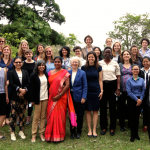
The United Nations emphasizes how fundamental gender equality and the role of women are for delivering on the promises of sustainability, peace and human progress.
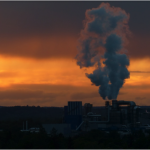
The history of environmentalism tells us naming and shaming alone is not the pathway toward constructive debates, let along meaningful outcomes. The pressure is on us to make a change, and we can’t afford to leave anyone behind.
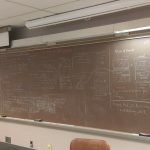
I had no idea of how to build a website from scratch. Given my background in software engineering, my mentor at CCSR trusted that I would be up for the challenge. Still, I was intimidated and worried that it would not work out well, but I accepted the challenge.













